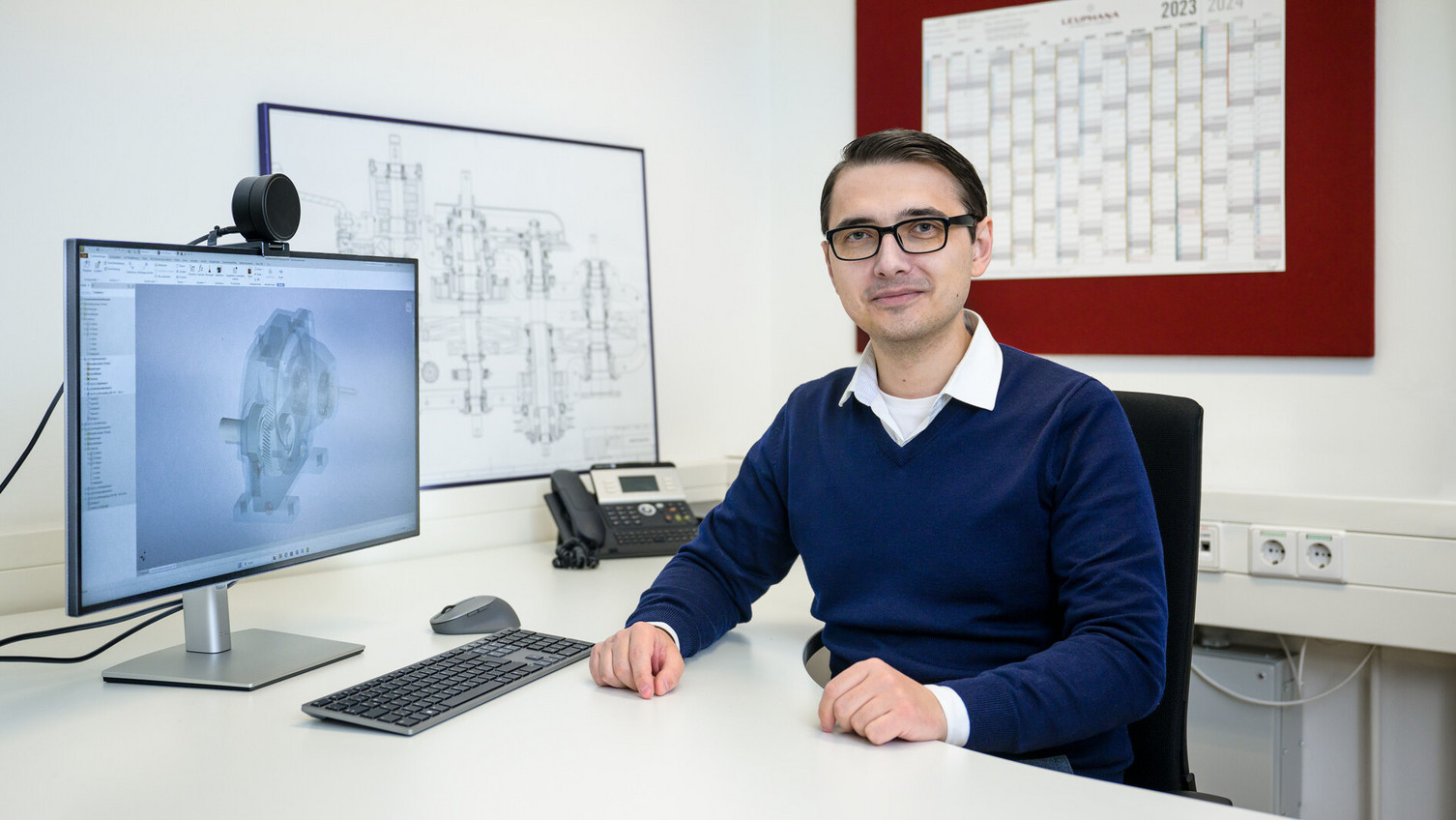New at Leuphana: Prof Dr Arthur Seibel - The creative designer
2024-01-16 How creative can artificial intelligence be? Mechanical engineer Arthur Seibel has just been appointed Professor of Product Development and Engineering Design. He intends to develop a digital sparring partner for young engineers.
"Inventions are created when different patterns are put together whose connection has not been seen before," explains Prof Dr Arthur Seibel. Recognising these connections requires experience: "If you want to design something innovative, you need to have seen many components or machines." The mechanical engineer has now been appointed Professor of Product Development and Engineering Design. One focus of his research is digitalisation. Arthur Seibel wants to develop an artificial intelligence that supports young engineers and acts as a kind of sparring partner for them. "Solutions based on simulations are state of the art. But you can't calculate with creatively conceived components," explains Arthur Seibel. He therefore has to feed the AI with data from real components. Not an easy task: "The available data is limited. There is not an infinite number of real components to use to create training data sets." Nevertheless, the researcher wants to try to train the AI to be creative: "Innovation requires creativity. I believe that creative thinking can be learnt by a machine to a certain extent," explains Arthur Seibel.
In a study at the Fraunhofer Research Institution for Additive Manufacturing Technologies IAPT in Hamburg, Arthur Seibel and his team have already examined how computer-generated models of industry-relevant components can be measured and the data analysed by a deep neural network. The results showed a good match with real cases and have the potential to be continuously improved through training with additional data.
Arthur Seibel always worked closely with mathematics and completed his doctorate on a mathematical topic. In his habilitation, however, he focussed on methodical product development. In the field of parallel kinematics, he worked with other designers to develop a statically stable walking robot that can even climb spiral staircases. "Our hope is that this robot will one day help paraplegics," says Arthur Seibel. He also specialises in tribology. "Friction plays a major role in construction. According to relevant literature, the economic damage is estimated at seven to eight per cent. That's why we frequently seek to reduce friction in machines," explains Arthur Seibel. The engineer is particularly interested in static friction, i.e., the force required to set a body in motion.
In the field of soft robotics, Arthur Seibel has developed a gecko made of silicone. It could explore impassable or dangerous areas, for example, as silicone only burns at very high temperatures and does not react with many hazardous chemicals. Soft grippers, for their part, can play a role in the handling of fragile or irregularly shaped objects. Until now, soft robots have often been supplied with compressed air via pneumatic hoses, meaning that their range is limited: "The holy grail would be a soft robot with integrated pneumatics and electronics that are also soft themselves," explains Arthur Seibel. In the field of soft robotics, the researcher will be collaborating with the newly appointed Professor Dr Ghada Bouattour at Leuphana.
Arthur Seibel studied mechanical engineering at Hamburg University of Technology, specialising in design engineering and product development. He was a research assistant and later a senior engineer in the research group “System Technologies and Engineering Design Methodology” at Hamburg University of Technology. He completed his doctorate there on the topic of "On the Inclusion of Parameter Uncertainties into Engineering Design Computations". Until 2023, he was group leader and later department head at the Fraunhofer Research Institution for Additive Manufacturing Technologies IAPT in Hamburg. He habilitated in the field of engineering design at Hamburg University of Technology with a thesis titled "Systematic Design of Soft Machines". Since winter-semester 2023, he has been Professor of Product Development and Engineering Design at the Institute of Production Technology and Systems at Leuphana University Lüneburg.

